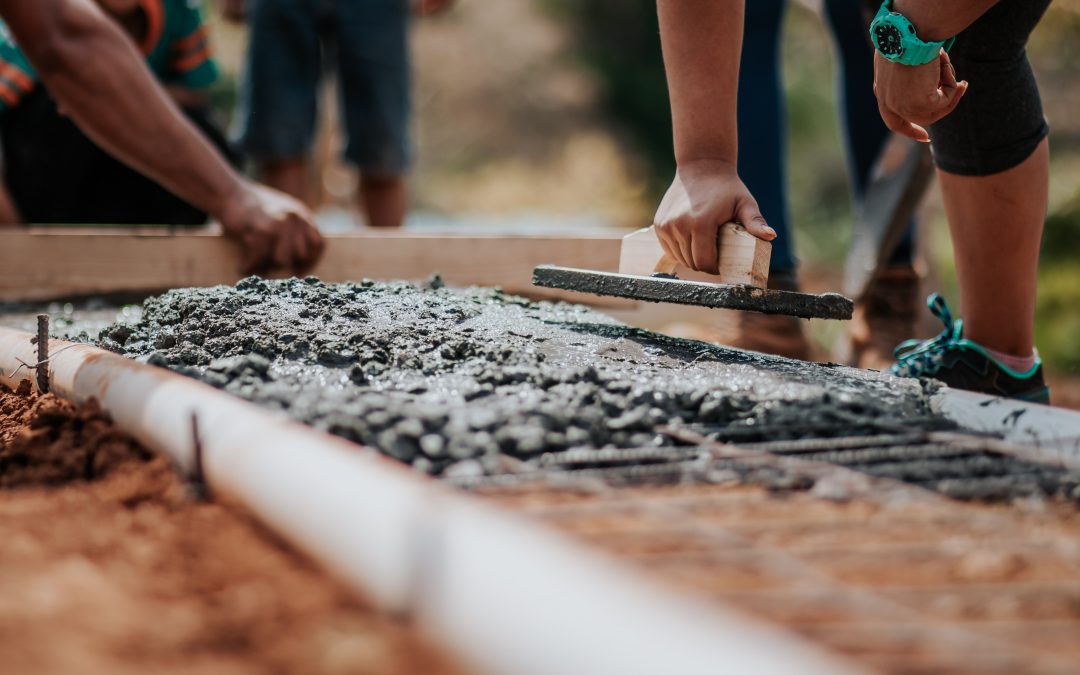But some industries stand to gain even more than others
Absolutely Ideal
They’re easily transportable, customizable, flexible, affordable, and FAST, so it’s no wonder modular buildings can be simple, smart go-to solutions for any business. And while there’s no doubt about their versatility, for certain industries they are absolutely ideal.
What Makes Them So Special?
Here are just some of the many top reasons why modular buildings are winning over more and more industries:
They’re FAST. In some cases, nearly 50 percent faster than traditional builds!
They’re easy on the wallet. Prefabricated buildings are simply a more cost-effective option for a host of reasons. Reduced labor costs and fewer delays due to weather coupled with time savings is money back in the bank.
They’re flexible. Ease of mobility and installation no matter the terrain or location.
They’re customizable. The possibilities are endless when it comes to configuring modulars or adding features and custom design elements.
They’re environmentally sound. The modular construction process produces far less waste over traditional construction methods. Because they are built indoors in a highly controlled manufacturing setting, there is far less disruption to surrounding environments. Materials are more easily recycled and repurposed and they’re better protected from the adverse effects of weather.
They’re safer for workers. Because they’re built in a factory setting, higher quality controls and safety measures can be put in place and enforced, keeping workers safer and more efficient. The risks of typical workplace injury—slips, falls, heat exposure—are reduced significantly.
Which Industries Gain the Most from Modulars?
Efficient and extremely durable, modulars are the obvious choice for a number of fast-paced industries. In fact, modulars stand to transform — for the better — certain industries, with the construction industry being a prime example.
#1. Construction
What do modulars do for the construction industry? What don’t they do is the real question. For starters, modular buildings are constructed indoors, in a factory setting. Right off the bat, this eliminates the costly delays posed by weather or bringing materials and supplies to potentially difficult-to-get-to sites and locations. Rather, the modules are built inside, then transported, and installed.
Worker safety gets a huge boost, too. Because the weather isn’t part of the construction equation, slippery surfaces from rain or snow are eliminated and so too is the potential for slips and falls. Likewise, workers are inside a climate-controlled environment, reducing exposure to extreme temperatures.
The list goes on when it comes to worker safety. Thanks to the controlled factory environment, the risk of electrical lines or equipment being exposed to moisture is significantly reduced, further preventing dangerous situations. According to OSHA, safer project worksites are fast becoming the main driver of building with modular construction.
#2. Hospitality
In order for any hospitality business to be successful, the strategic synthesis of a number of core industries and stakeholders must work together (real estate, construction, hotel owners, etc.) in order to produce a final service-specific product. Rapid-turnaround times are frequently par for the course.
Whether a real estate developer wants a hotel ready prior to a big event or a company wants a building completed within a particular financial timeframe, modulars get the job done so businesses can see that ROI start to roll in.
For this reason, modulars are clearly a no-brainer for the hospitality industry. They’re fast becoming THE go-to for getting “heads in beds,” as the industry saying goes.
Because the build takes place simultaneous to site preparations and permitting, the entire process can be completed 30 to 50 percent faster than traditional construction! Any regulatory requirements, tweaks, or customizations are solved at the factory, giving you a higher-quality product when it’s delivered.
#3. Housing
In terms of multi-unit housing, modular buildings are fast becoming the choice. The real selling point for modular construction in the multi-unit housing market is their flexibility. They can cover a wide range of needs and applications quickly and affordably. Top applications can include:
Workforce housing: Certain industries, such as mining, infrastructure construction, or other energy-related fields, require a labor force to live and work in sometimes remote regions. Modular housing units are built and completed offsite, then transported and installed. Traditional construction simply isn’t an option in these remote locations.
Dorms: Colleges and universities gain a whole lot using modular construction. Because the modular building process is done offsite, there is far less disruption to a busy campus environment. Modulars can be brought in to accommodate student-housing shortages, due to fluctuating and/or increasing student populations. Modulars also align with a more “green” agenda, as they produce far less waste and are built with energy efficiency in mind. Very appealing features for any educational institution.
Condos and apartments: Again, modular buildings can quickly accommodate housing needs, especially in areas impacted by housing shortages. They’re scalable, customizable, and built for efficiency.
#4. Healthcare
At this stage, most people are well aware that healthcare must be able to expand medical facilities rapidly and as necessary in order to meet urgent, sudden demands. For this reason, the healthcare industry is particularly poised to benefit immensely from modular buildings. In fact, as of 2020, it’s reported that the healthcare industry is the third-largest consumer of modular buildings.
A prime example of how successful modular solutions are for healthcare is all of the contingencies and needs posed by the pandemic. In China, a 300,000-square-foot hospital with a capacity of 1,000 patients was completed in six (you read that right!) days thanks to modulars! And in the US, the healthcare industry turned to modulars for portable clinics, testing sites, ER overflow, quarantine space, and more.
Source https://blog.mobilemodular.com/modulars-offer-benefits-galore

